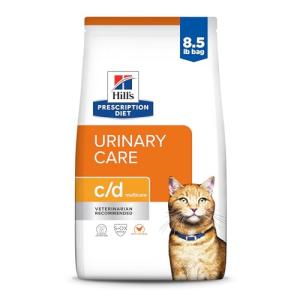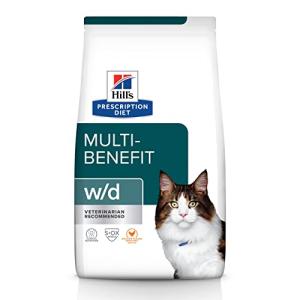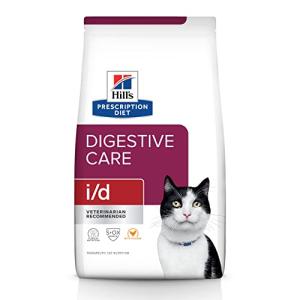More than half of domestic cats are estimated to be overweight or obese, a statistic that should serve as a stark wake-up call for cat owners everywhere. It’s easy to coo over a “chubby” kitty, perhaps even finding their rounded physique endearing. However, beneath that seemingly harmless extra padding lies a serious medical condition, one that can significantly impact a cat's health, well-being, and even lifespan. Feline obesity isn't merely about aesthetics; it's a state of excess body fat accumulation that transcends being "a little chunky" and plunges into the realm of genuine health risk. Imagine your cat, once agile and playful, now struggling to groom themselves, panting after only a few minutes of gentle play, or seemingly losing interest in activities they once adored. These subtle shifts can be early indicators that your feline friend is carrying too much weight. This article aims to peel back the layers of feline obesity, moving beyond the superficial and delving into the core understanding of this pervasive issue. We will explore what truly defines feline obesity, how to recognize it in your own cat, the complex web of factors that contribute to its development, and, crucially, the cascade of serious health risks it unleashes. Finally, we will arm you with practical, actionable steps for both preventing and managing feline obesity, empowering you to take charge of your cat's health and ensure a happier, longer life. We will navigate through the methods of assessing your cat's weight, unravel the dietary and lifestyle influences that tip the scales, illuminate the dangerous consequences of excess weight, and finally, chart a course towards effective prevention and management strategies.
So, what exactly constitutes feline obesity? It’s more than just being a bit heavy; it’s a condition characterized by an excessive accumulation of body fat. While “overweight” and “obese” are often used interchangeably, there's a crucial distinction. Overweight cats are carrying more weight than their ideal, but obese cats have crossed a threshold into a state of significant health risk due to excess fat. Think of it as a spectrum, where being slightly overweight might be a yellow flag, but obesity is a glaring red one, signaling a need for immediate attention. How can you, as a loving cat owner, assess if your feline companion is venturing into the danger zone? While your veterinarian remains the ultimate authority on diagnosing feline obesity, there are practical methods you can employ at home to get a good initial assessment. The gold standard for evaluating a cat’s weight isn't solely relying on the number on the scale, though that can be a useful data point. Instead, veterinary professionals and increasingly informed owners utilize the Body Condition Score, or BCS. This isn’t about precise measurements with scales and calipers, but rather a hands-on, visual and tactile evaluation of your cat’s physique. Imagine running your hands gently along your cat’s ribcage. In a cat of ideal weight, you should be able to feel the ribs easily with just a slight fat covering – akin to feeling the knuckles of your hand when your palm is flat. If you have to press firmly to feel the ribs, or if you can’t feel them at all without significant pressure, that's a strong indication of excess fat. Similarly, examine your cat’s profile from the side and from above. A healthy cat should have a discernible waistline when viewed from above, a slight inward curve just behind the ribs. From the side, their abdomen should be tucked up slightly, not bulging or sagging. Obese cats often lose this waistline, appearing rounded from above, and may exhibit a pronounced, pendulous belly – sometimes referred to as a “fat pad” – swinging between their legs. Visual cues also play a significant role. Observe your cat’s overall shape. An overweight or obese cat often takes on a more rounded, less defined body shape, lacking the lean, athletic silhouette of a cat at ideal weight. You may notice a widening of the chest and abdomen, and the once graceful lines of their body become softened and indistinct due to the layers of fat. It's important to acknowledge the limitations of simply using a weight scale at home. Breed variations, age, and overall body size can influence what a “normal” weight looks like for your individual cat. A large-breed cat like a Maine Coon will naturally weigh more than a slender Siamese. Therefore, relying solely on weight charts can be misleading. The BCS and visual assessments are far more reliable for determining if your cat carries excess body fat, regardless of breed or size. However, while these at-home assessments are valuable, they should not replace professional veterinary guidance. If you have any suspicion that your cat might be overweight or obese, or if you notice any of the visual or tactile signs described, it's crucial to schedule a check-up with your veterinarian. They possess the expertise to accurately diagnose feline obesity, rule out any underlying medical conditions that might be contributing to weight gain, and develop a tailored weight management plan if necessary. Think of your veterinarian as your partner in your cat’s health journey – their professional evaluation is the essential first step in addressing feline obesity effectively.
Why are so many of our feline companions becoming overweight and obese? The causes are often multi-faceted, but they frequently boil down to an imbalance between calories consumed and calories expended. Dietary factors are undeniably the bedrock of weight gain in cats. Overfeeding, even with the best intentions, is a remarkably common pitfall. It’s surprisingly easy to misjudge portion sizes, especially when relying on visual estimates or simply filling the food bowl “to the usual level.” Many cat owners, wanting to ensure their beloved pets are well-fed, inadvertently provide portions far exceeding their cat's actual caloric needs. The energy density of many commercial cat foods, particularly dry kibble, further exacerbates this issue. Dry food is often calorie-dense, meaning it packs a lot of calories into a relatively small volume. A seemingly small scoop of kibble can contain a significant number of calories, and when cats are allowed to graze on dry food throughout the day (a practice known as free-feeding), they can easily consume far more calories than they burn. The feeding method itself – free-feeding versus scheduled meals – plays a crucial role. While the convenience of free-feeding is undeniable for busy owners, it often removes any control over portion sizes and eating habits. Cats, especially those with less active lifestyles, can readily overeat when food is constantly available, nibbling throughout the day out of boredom or habit, rather than actual hunger. Treats and human food, while offered with affection, are often calorie bombs in disguise. Many commercial cat treats are surprisingly high in calories, and even small portions given frequently throughout the day can contribute significantly to weight gain. Table scraps and human food are often even worse culprits. Foods designed for human consumption are typically higher in fat, sugar, and salt than what is appropriate for a cat's diet, and even seemingly innocuous tidbits can add up quickly in terms of calories.
Beyond diet, lifestyle factors are equally critical in the development of feline obesity. The modern indoor lifestyle, while providing safety and comfort, can inadvertently contribute to a cat's sedentary existence. Confined to the indoors, many cats lack the opportunities for natural exercise and exploration that their outdoor counterparts enjoy. They may spend a large portion of their day sleeping or lounging, with limited physical activity. This lack of exercise and stimulating play further tilts the caloric balance towards weight gain. Play is not just fun for cats; it’s an essential component of their physical and mental well-being, mimicking their natural hunting behaviors and providing crucial physical activity. Many indoor cats, however, do not receive sufficient opportunities for interactive play that truly elevates their heart rate and engages their muscles. Age is another factor to consider. As cats age, their metabolism naturally slows down. A kitten with a lightning-fast metabolism can burn calories much more efficiently than a senior cat. This metabolic slowdown means that older cats require fewer calories to maintain a healthy weight, and if their food intake remains unchanged, weight gain becomes almost inevitable.
Neutering or spaying, while incredibly responsible and beneficial for population control and reducing certain health risks, also has a well-documented impact on a cat’s metabolism and predisposition to weight gain. The hormonal changes that occur after sterilization lead to a decrease in metabolic rate, meaning the cat burns fewer calories at rest. Simultaneously, neutering/spaying can increase appetite in some cats. This combination of reduced calorie expenditure and potentially increased food intake creates a perfect storm for weight gain if dietary adjustments and increased activity are not implemented proactively after the procedure. It’s important to also acknowledge that, although less common, underlying medical conditions can sometimes contribute to weight gain in cats. Hypothyroidism, a condition where the thyroid gland doesn’t produce enough thyroid hormone, can slow down metabolism and lead to weight gain, lethargy, and other symptoms. Certain medications, such as corticosteroids, can also have weight gain as a side effect. However, it’s crucial to emphasize that these medical conditions are less frequent causes of feline obesity compared to dietary and lifestyle factors. In most cases, feline obesity is primarily driven by an imbalance in calorie intake and expenditure, highlighting the pivotal role of responsible feeding and providing adequate opportunities for physical activity.
The consequences of feline obesity are far more profound than simply a change in appearance. Excess weight acts as a silent saboteur, wreaking havoc on multiple bodily systems and significantly increasing the risk of a wide range of serious and potentially life-threatening health conditions. Perhaps one of the most well-established and concerning links is between feline obesity and diabetes mellitus, specifically type 2 diabetes. Obesity dramatically increases a cat’s risk of developing diabetes, primarily due to the development of insulin resistance. Fat cells release hormones and other substances that interfere with the body's ability to effectively use insulin, the hormone responsible for regulating blood sugar. This insulin resistance forces the pancreas to work harder to produce more insulin, eventually leading to pancreatic burnout and the onset of diabetes. Symptoms of feline diabetes can include increased thirst and urination, increased appetite coupled with weight loss (despite eating more), and lethargy. Left unmanaged, diabetes can lead to a cascade of complications, including nerve damage (neuropathy), kidney disease, and a potentially life-threatening condition called diabetic ketoacidosis.
Joint problems and arthritis, specifically osteoarthritis, are another major concern for obese cats. Carrying excess weight puts tremendous stress on joints, accelerating the wear and tear of cartilage and bone. This increased stress leads to inflammation, pain, and reduced mobility, hallmarks of osteoarthritis. Obese cats are significantly more prone to developing arthritis, often in weight-bearing joints like hips, knees, and elbows. The pain associated with arthritis can dramatically impact a cat’s quality of life, limiting their ability to jump, play, groom themselves effectively, and even use the litter box comfortably. Hepatic lipidosis, or fatty liver disease, is a particularly serious and potentially fatal liver condition directly linked to obesity and rapid weight loss in cats, even unintentional weight loss. When an obese cat stops eating or experiences rapid weight loss, the body begins to break down stored fat for energy. However, in cats, this process can overwhelm the liver, leading to an excessive accumulation of fat within liver cells, impairing liver function. Hepatic lipidosis can develop rapidly and is a medical emergency requiring immediate veterinary intervention.
Obesity also increases the risk of lower urinary tract disease (FLUTD) in cats, a broad term encompassing various conditions affecting the bladder and urethra. Obese cats are more prone to developing urinary crystals, stones, and infections, potentially leading to painful urination, bloody urine, and urinary blockages, which are life-threatening emergencies, particularly in male cats. While less frequently discussed, cardiovascular issues are also a concern. Carrying extra weight puts additional strain on the heart, forcing it to work harder to pump blood throughout the body. Over time, this increased workload can contribute to the development of heart disease and high blood pressure. Respiratory problems can also arise in obese cats. Excess fat around the chest and abdomen can restrict lung expansion, making breathing more difficult, especially during exertion or in hot weather. Obese cats may exhibit panting, increased respiratory rate, and decreased exercise tolerance. Furthermore, obese cats face increased surgical and anesthetic risks. The excess fat tissue can make surgical procedures more technically challenging and increase the risk of complications. Anesthesia can also be riskier in obese cats due to respiratory and cardiovascular compromise.
Skin problems and grooming difficulties are another often-overlooked consequence of feline obesity. Obese cats often struggle to groom themselves effectively, particularly in hard-to-reach areas. This lack of grooming can lead to matting of the fur, skin infections, and overall poor coat condition. Finally, and perhaps most tragically, feline obesity is associated with a reduced lifespan. The cumulative impact of all the health risks associated with obesity can significantly shorten a cat's healthy lifespan and diminish their overall quality of life in their later years. It’s crucial to understand that feline obesity is not a cosmetic issue; it's a serious medical condition with far-reaching and potentially devastating health consequences. Recognizing the risks is the first step towards taking proactive measures to prevent and manage this prevalent and preventable disease.
Prevention truly is the cornerstone of maintaining your cat's health and avoiding the pitfalls of obesity. Establishing healthy habits early in a cat's life, starting from kittenhood, sets the stage for a lifetime of well-being. Proper kitten nutrition is paramount. Feeding a high-quality, species-appropriate kitten food in appropriate portions provides the necessary nutrients for growth and development without promoting excessive weight gain. Encouraging play and exercise from a young age helps kittens develop healthy activity habits and build muscle mass. Establishing healthy feeding routines right from the start is crucial. Avoid free-feeding and instead opt for scheduled meals, even for kittens, to instill controlled eating habits.
For cats who are already overweight or obese, dietary management becomes the linchpin of any successful weight loss plan. Portion control and measured feeding are absolutely essential. Ditch the “eyeballing” and start using a measuring cup to accurately portion out your cat’s food according to the feeding guidelines on the food packaging, adjusted as needed based on your veterinarian's recommendations. High-quality, species-appropriate food is paramount for weight loss. Look for cat foods that are high in protein and lower in carbohydrates. Protein helps cats feel fuller for longer and supports muscle mass maintenance during weight loss, while reducing carbohydrate intake can help with weight management and blood sugar control. In some cases, particularly for cats with significant obesity or underlying health conditions, your veterinarian may recommend a prescription weight loss diet. These diets are specifically formulated to be lower in calories, higher in fiber and protein, and nutritionally balanced to support safe and effective weight loss under veterinary supervision.
Treats and table scraps must be drastically reduced or ideally eliminated altogether during a weight loss program. If you feel the need to give treats, opt for low-calorie options, and offer them sparingly, factoring their calories into your cat's daily calorie allowance. For cats on a weight loss journey, scheduled feeding becomes even more critical. Transitioning away from free-feeding and implementing scheduled meals allows you to precisely control your cat's calorie intake and prevents overeating. Alongside dietary changes, increasing exercise and enrichment is equally important. The goal is to make activity fun and engaging for your cat, not a chore. Interactive play sessions are key – use fishing rod toys, laser pointers (with caution), or other interactive toys to engage your cat in active play for at least 10-15 minutes several times a day. Puzzle feeders and food toys are excellent tools to encourage activity and slow down eating. Instead of simply placing food in a bowl, use puzzle feeders that require your cat to work for their food, promoting mental stimulation and physical activity. Environmental enrichment plays a vital role. Provide climbing structures, scratching posts, and window perches to encourage movement and exploration throughout the day.
It’s absolutely crucial to emphasize that weight loss for cats should be gradual and always under veterinary guidance. Rapid weight loss in cats, particularly obese cats, can be extremely dangerous and trigger hepatic lipidosis. A safe and healthy weight loss rate for cats is typically around 0.5-2% of their body weight per week. Regular weigh-ins and check-ups with your veterinarian are essential for monitoring progress, adjusting the weight loss plan as needed, and ensuring your cat’s health and well-being throughout the process. Your veterinarian can provide personalized recommendations tailored to your cat's individual needs, health status, and lifestyle, ensuring a safe and effective journey towards a healthier weight.
Feline obesity is a serious and alarmingly common health issue, but it’s also a highly preventable and manageable one. It’s not simply about appearances; it's about safeguarding your cat's health, longevity, and quality of life. As loving cat owners, we hold a significant responsibility in ensuring our feline companions thrive. Taking a proactive role in your cat's health begins with understanding the risks of obesity, assessing their weight honestly, and consulting with your veterinarian. Take the first step today by assessing your cat’s Body Condition Score and discussing any concerns with your veterinarian. Together, you can develop a plan that addresses any weight issues and promotes a healthier lifestyle for your feline friend. Remember, with commitment, consistency, and the right veterinary guidance, feline obesity can be effectively managed, and in many cases, even reversed. By prioritizing their health and well-being, we can empower our feline companions to live longer, healthier, happier, and more fulfilling lives, filled with purrs, play, and the unwavering companionship we cherish.







